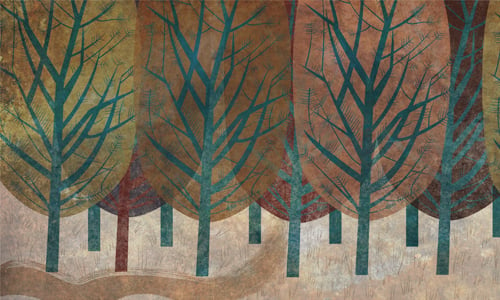
Dear Reader,
A father moved into a home facing a forest. He repeatedly warned his young and mischievous son about the dangers of the forest and its many ferocious beasts. But the son ignored his father and chose to explore his surroundings.
One day, the young boy climbed over the fence enclosing his home and ventured into the forest. Deciding that it was time to teach his son a lesson, the father dressed up as a bear and followed his son.
As the vicious bear chased him, the child cried out, “Daddy! Daddy! Help me! Save me!” But his father did not appear.
The bear attacked the boy, and his screams grew louder and more frantic. Finally, with his last ounce of strength, he escaped the bear’s claws, climbed over the fence and breathlessly ran home.
“Daddy, didn’t you hear me?!” He cried to his father. “A bear was attacking me! I called you, but you didn’t come!”
“My son,” his father lovingly answered. “Didn’t you realize? I was the bear.”
I thought of this story as I read this week’s Torah portion. Jacob prepared to meet his brother, Esau, after twenty years of enmity and was “greatly afraid and distressed.”1
Jacob emerged from this meeting unscathed. Upon parting, he assured Esau that he would travel at his own pace and would eventually meet him in Seir. Seir refers to the Messianic era when there will no longer be conflict between Jacob and Esau.2
The meeting between Jacob and Esau represents the cosmic meeting between light and darkness, Divine consciousness and ego-centeredness, spirituality and physicality, good and bad.
Jacob was seeking not only to neutralize his brother, so he would not harm him, but to encourage Esau to join forces with him. Jacob realized, however, that harnessing Esau’s strengths would be a long and arduous process that would only happen in the Messianic era.
We, too, are traveling towards “Seir” at our own pace. Until we arrive there, our lives are consumed with fighting the negativity and overcoming the challenges of our encounters with our own versions of Esau.
But, if G‑d is all good, why do we need so many of these encounters? Why is life such a dark and difficult battle?
It’s a question that we can never fully answer, for if we could justify evil, wouldn’t we become it? If we understood the role of darkness, we wouldn’t work so hard to eradicate it.
Nevertheless, the Kabbalists explain that G‑d created evil so that it can be exploited by goodness. Darkness and cruelty exist in order to be transformed into light. Challenges abound so that we can dig deep within ourselves and mine our infinite potential.
As we face our challenges, as we encounter our battles with Esau, it can help us to remember that the bear isn’t as fearful as he seems.
Hiding beneath his costume is our Father, trying to teach us.
Chana Weisberg,
Editor, TJW
Midrash Rabbah on Genesis 33:14.







